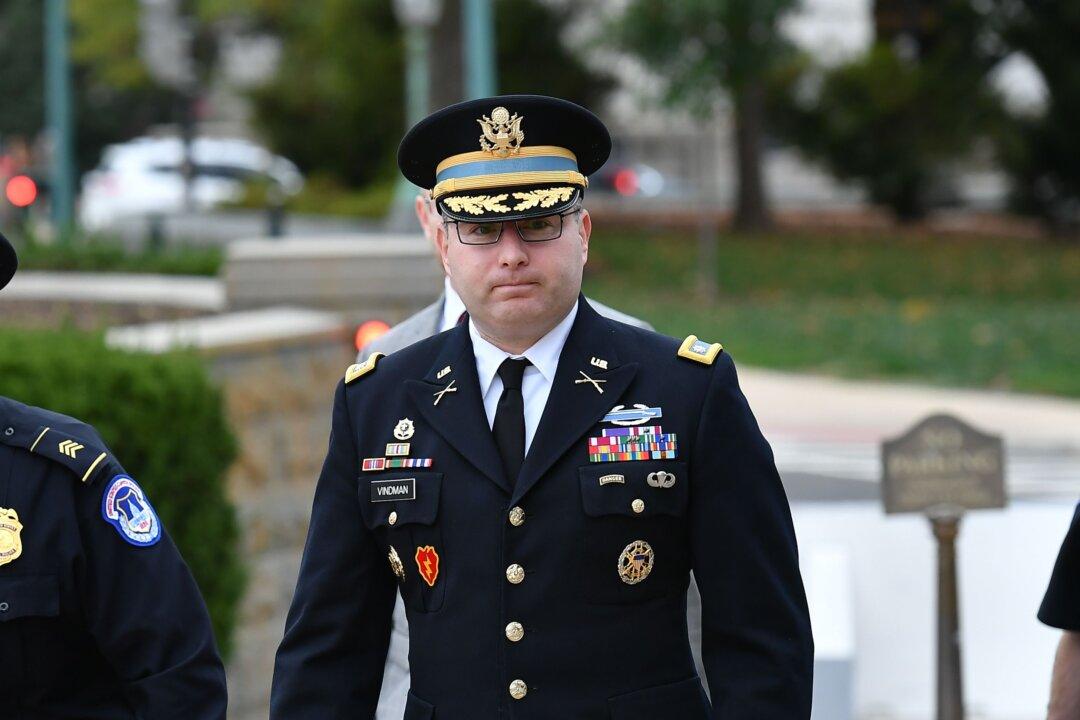A senior National Security Council official who listened in on President Donald Trump’s call with the leader of Ukraine testified in the impeachment inquiry on Oct. 29, telling lawmakers that he twice raised concerns about the conversation with the NSC’s lead counsel.
Alexander Vindman, the National Security Council director for European affairs, said that he and former NSC staffer Fiona Hill escalated their concerns to the council’s lead attorney.





